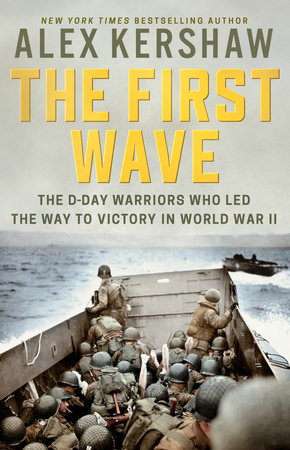 “The bigger the challenge, the better we play.” – Lord Lovat
“The bigger the challenge, the better we play.” – Lord Lovat
Late in the summer of 2014, life blessed me with the opportunity to visit Juno Beach, the hallowed ground where Canadian troops landed on June 6th, 1944.
While I visited the German bunker, carrying my son in a sling, I kept meditating about the kind of men that landed on that fateful day.
Men who could cope with gigantic – and potentially lethal – problems such as a landing craft drifting away from the planned landing side, German guns that were supposed to have been silenced through bombings, lack of ammunition or food, the psychological tool of being sleep-deprived and surrounded by enemies who only waited for the right moment to assault and kill you.
These were not the type of men we encounter every day, I told myself. But maybe they were, in the sense that they were all different and they were all human, made of flesh and blood. Just like you and me.
A few weeks ago, I received a copy of the magnificent book The First Wave by military historian Alex Kershaw by the fantastic people at Penguin Random House Canada.
What a treat it was for the military history enthusiast in me.
The key to responding to the question I kept asking myself on the beach lies on page 312, when the author writes that a Veteran US Ranger “[…] stressed that during the most critical combat of modern times it was the “heart and mind” that had mattered most.”
Witness to that, “[…] an advance party had cut through a barbed-wire perimeter [protecting a gun battery] and crawled across the hundred-yard-wide minefield, disarming mines with their bare fingers in the dark.” (page 87). Talk about heart and mind!
But the men who fought their way on and through the beaches were also led by exceptionally inspiring figures.
Let me just quote two, among all those evoked by Alex Kershaw. Brigadier General Theodore Roosevelt (son of the 26th President of the United States) and Lord Lovat (Simon J. Fraser), 24th chieftain of Clan Fraser.
General Roosevelt insisted on landing with his troops walking with his cane (he was suffering from arthritis) “[…] wearing a knit watch cap, not the regulation helmet […]”, insisting to board his landing craft unaided.
As for Lord Lovat, the inspiring Scottish commando leader certainly must have looked like an eccentric for his German enemies, for he “[…] was armed with a hunting rifle, dressed for a good day’s walk on the moors: a white turtleneck sweater, suede vest, khaki corduroy pants, and a duffle coat, which he would leave behind when he went ashore.”
The ordinary men from Canada, Great Britain and the United States who successfully assaulted the Nazi fortress on that historic day became extraordinary through their endurance, sacrifice and determination. And they were inspired by men who rejected the blandness of conformity by showing themselves for what they were, whether it was being afflicted by illness or expressing pride in their ancestry.
Alex Kershaw is probably the best book I have read so far about D-Day and the importance of supreme courage when the going gets tough (I’m referring here to Lieutenant Colonel James Rudder’s men who were besieged in a cramped command post without food, water, ammunition and sleep (page 243)).
Beautifully written (I love Kershaw’s style) and engaging, The First Wave should be the first companion you think of bringing on the roads of summer vacations or on a beach where you will be able to enjoy what these guys fought for – freedom.

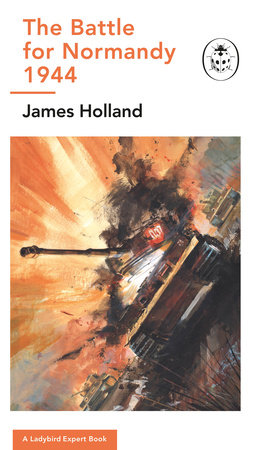
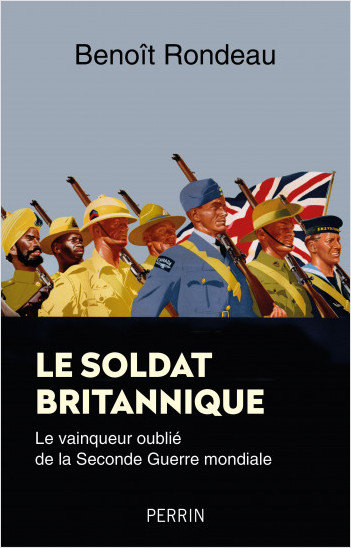

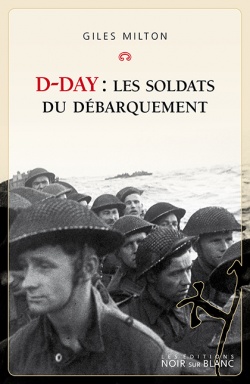 Je me suis souvent posé la question à savoir comment se sentaient les soldats qui ont été parachutés et qui sont débarqués en Normandie dans le cadre de l’Opération Overlord. À la fin de l’été 2015, j’ai eu l’immense privilège de fouler le sable de Juno Beach, le secteur canadien du débarquement. Après la visite d’une position fortifiée, nous nous sommes dirigés sur la plage avec notre guide. J’ai alors été envahi d’un double sentiment. Je ressentais d’une part une très grande fierté de savoir que les bottes canadiennes ont traversé ce sol sacré pour libérer l’Europe de la horde brune. D’autre part, je ne pouvais m’empêcher de me demander comment ces hommes se sentaient au moment d’accomplir le destin auquel leur dévouement les appelait.
Je me suis souvent posé la question à savoir comment se sentaient les soldats qui ont été parachutés et qui sont débarqués en Normandie dans le cadre de l’Opération Overlord. À la fin de l’été 2015, j’ai eu l’immense privilège de fouler le sable de Juno Beach, le secteur canadien du débarquement. Après la visite d’une position fortifiée, nous nous sommes dirigés sur la plage avec notre guide. J’ai alors été envahi d’un double sentiment. Je ressentais d’une part une très grande fierté de savoir que les bottes canadiennes ont traversé ce sol sacré pour libérer l’Europe de la horde brune. D’autre part, je ne pouvais m’empêcher de me demander comment ces hommes se sentaient au moment d’accomplir le destin auquel leur dévouement les appelait.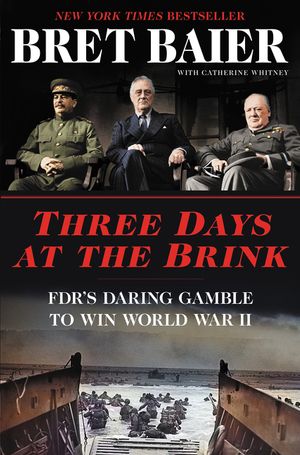 I have always loved to read about FDR, one of my favorite Presidents. Being a fan of presidential libraries and having done some research in a few in the past, I have vivid memories of the time I spent at his inspiring Presidential Library at Hyde Park. I was therefore very interested in Bret Baier’s latest book, not only because it covers a period of contemporary history – World War II – for which I have an unquenchable intellectual thirst, but also because he dove into the presidential archives, a real treasure trove for anyone eager to fully understand the magnitude of the accomplishments of those larger than life Commanders in chief who lead America at crucial times.
I have always loved to read about FDR, one of my favorite Presidents. Being a fan of presidential libraries and having done some research in a few in the past, I have vivid memories of the time I spent at his inspiring Presidential Library at Hyde Park. I was therefore very interested in Bret Baier’s latest book, not only because it covers a period of contemporary history – World War II – for which I have an unquenchable intellectual thirst, but also because he dove into the presidential archives, a real treasure trove for anyone eager to fully understand the magnitude of the accomplishments of those larger than life Commanders in chief who lead America at crucial times. “The bigger the challenge, the better we play.” – Lord Lovat
“The bigger the challenge, the better we play.” – Lord Lovat